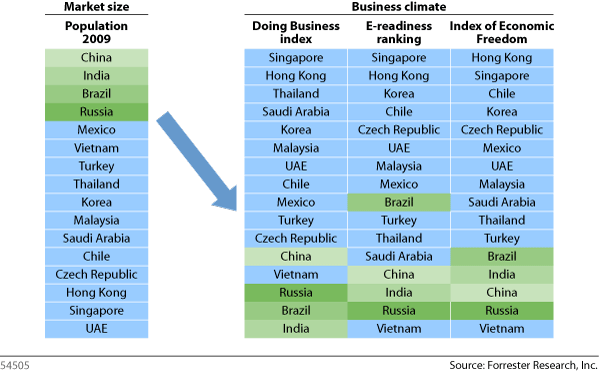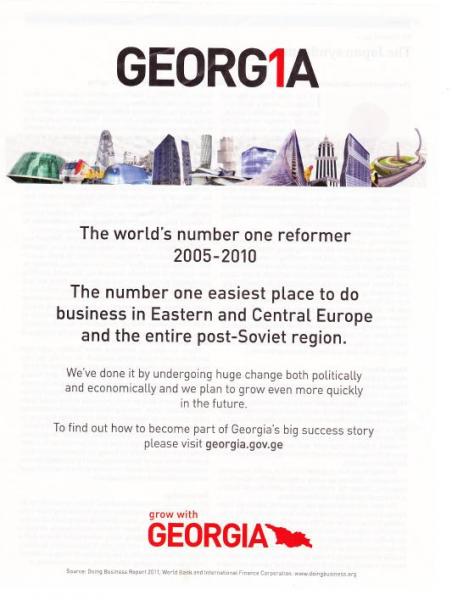Global Competition For “Doing Business”
I've written about the World Bank's Doing Business Index in several blogs and reports. One of my favorite graphics from my "Where In The World?" report on  market opportunity assessment looks at the BRICs (Brazil, Russia, India, and China) – relative to a selection of other emerging markets – in terms of population and then compares their rankings across three economic and political indicators: Doing Business, Economic Freedom, and eReadiness. The point is that "bigger is not always better" in terms of a potential market to enter.
market opportunity assessment looks at the BRICs (Brazil, Russia, India, and China) – relative to a selection of other emerging markets – in terms of population and then compares their rankings across three economic and political indicators: Doing Business, Economic Freedom, and eReadiness. The point is that "bigger is not always better" in terms of a potential market to enter.
Saudi Arabia has used the World Bank's Doing Business Index as a critical measure of its 10 x 10 initiative – a program of reforms launched with the objective of being in the top 10 countries for doing business by 2010. They missed the mark in 2010. But with the 2011 new rankings, we can congratulate Saudi Arabia's reformers for making it to 11 x 11.
What sparked this blog, however, was neither Russia's dismal ranking nor Saudi's meteoric rise. The impetus here was a full page ad in The Economist last week placed by Georgia, the former Soviet republic of Georgia. Georgia touts its own moment of glory as the #1 reformer between 2005 and 2010. According to the Prime Minister Press Service of Georgia, "it is the serious advertisement to International investors."
In the past few years, Georgia has undertaken reforms that span:
- Starting a Business
- Getting Credit
- Registering Property
- Protecting Investors
- Enforcing Contracts
- Dealing with Construction Permits
- Paying Taxes
- Trading Across Borders
- Closing a Business
What I find interesting is the use of the World Bank's index as a KPI for a country, and as a value proposition in a country's global marketing.
I'm also wondering if they are using eReadiness and other technology-based indices as well, illustrating their view that technology infrastructure is a real competitive driver and perhaps still a differentiator for certain emerging markets? Anyone seen examples?